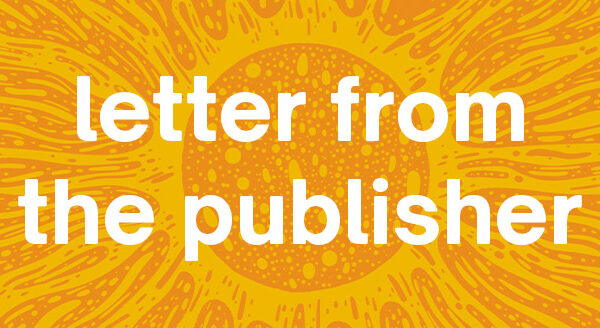
Letter from the Publisher: When We Walk By
Categories: New Release Letter from the Publisher

I was recently talking to a man I met who lived in San Francisco. He was full of laments about how “his city” had changed, citing in part the growing population of unhoused people in the area. He claimed the individuals putting up tents in the city’s encampments growing to the size of favelas had “copped out” of societal participation. As he ranted on, my mind swirled with various counterpoints I had learned from our upcoming book When We Walk By: Forgotten Humanity, Broken Systems, and the Role We Can Each Play in Ending Homelessness in America.
As Kevin F. Adler, Donald W. Burnes, Amanda Banh, and Andrijana Bilbija point out in their landmark offering, people experiencing homelessness are not cop-outs: almost half maintain jobs, and studies have shown that they spend their money with more care than housed people do. Most lose their housing from one or two bad breaks that could happen to any of us: a whopping hospital bill; an unfair layoff; a discriminatory eviction; a mental-health struggle.
While there are many ways to lose housing in the United States—a myriad of stories and experiences—the common outcome is relational poverty, where the downturned glance of the passer-by and the general loss of communal ties render those without housing as invisible shadows whose humanity is too often denied by their housed neighbors. Often it is relational poverty that can have the most brutal impact on our unhoused neighbors. As Adam, one neighbor experiencing homelessness says in When We Walk By, “I never realized I was homeless when I lost my housing, only when I lost my family and friends.”
There are systemic issues at work—widening wealth gaps; intergenerational poverty; a thin domestic safety net; housing bureaucracy; privatized healthcare; pharmaceutically financed opioid streams; systemic racism, gender-based violence, and homophobia—but as the authors make clear, humanistic elements play an equal part. This can shift if we who normally walk by instead stop; look into eyes; greet; connect; offer; see. In short, we must change the way our minds frame the mother with the sign on the corner, the elder asleep under the bridge, the youth making a home in their car.
The intent of When We Walk By is not just to convey information and broaden understanding; it is also meant to be a bridge itself between those who are willing to stop looking away and those so accustomed to being unseen. In this spirit, if you pre-order the book and submit a receipt through this form, Miracle Messages, the nonprofit founded by Kevin Adler, will donate a pair of socks to a person experiencing homelessness. This item is so often cited as something sorely needed.
Sharing resources matters. As does taking in the real human stories breaking at the heart of main street. Understanding the interlocking social causes behind homelessness can help shift the simplistic notion of poor personal choices merely being to blame; it may also give us space to see the other not as them, but as me, should the solid ground ever grow slippery beneath your feet.
—Tim McKee, publisher of North Atlantic Books




